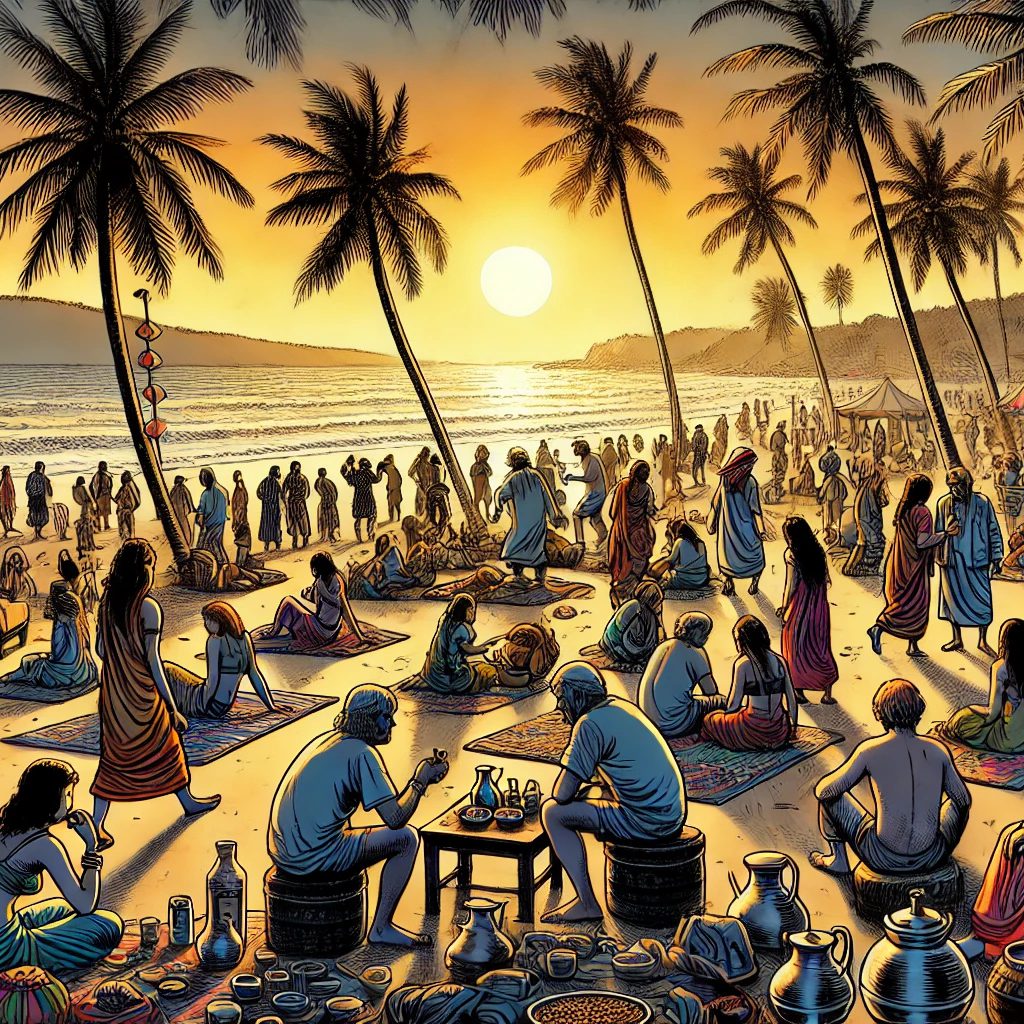Losing Yourself to Find Yourself

“One’s destination is never a place, but a new way of seeing things.” – Henry Miller
When I first arrived in Goa as a 19-year-old, in the early hours of the morning, I was knackered from nearly 24 hours of non-stop travel via Heathrow and Mumbai. But I was also too thrilled to be there to even think about sleep. Before setting off, my path had seemed clear—I was supposed to return to the UK and study law. From my vantage point overlooking the beach, a vibrant scene of psychedelic trees and pulsating trance music unfolded, marking the start of a shift in my self-perception and worldview.
Among the crowd, I saw both sides of the coin of living free. Some, dressed in baggy hippie clothes, looked like they were experiencing life at its fullest—dancing, eyes alight with something raw and untamed, as if they had escaped a world that was still caged. Others had a faded blankness in their gaze, as if they had gone too far, to a place where the colour of life might never fully return. It was a stark contrast, and even then, I sensed that the fine line between freedom and escape was one worth paying attention to.
They say you go to India to find yourself. It’s a cliché for a reason. But maybe you have to lose yourself entirely before you have any hope of finding what lies underneath. Travel is not just about movement across land—it’s about the collapse of the familiar, the stripping away of assumptions, the realisation that the map of the world you’ve been carrying in your head is only a fraction of what’s really out there.
In NLP, there’s a concept that has stayed with me more than any other: Sensory Acuity. It’s the art of refining awareness, tuning into the details that others might overlook, and sharpening the ability to experience the world to its fullest. If creativity is the ability to make connections between seemingly unrelated things, then Sensory Acuity is the key to unlocking that process. And nothing forces you to sharpen your senses quite like being dropped into an new environment.
Pacific islanders once navigated vast oceans by feeling the rhythms of the waves beneath them, sensing shifts in wind patterns, and reading the stars with an attunement so precise that a single miscalculation could mean death. For an artist, death takes another form: reputational damage. To be misunderstood, dismissed, or torn apart by critics can be traumatic—perhaps one reason so many artists lean on drugs to alleviate the pressure. If your livelihood and sense of self are wrapped up in your work, then failure is not just professional—it’s deeply personal.
But what if creativity itself is not something to be manufactured, but something already within us? Aldous Huxley, in The Doors of Perception, suggests that in certain psychedelic states of mind, we are not seeing a distorted version of reality—we are seeing things as they truly are. He draws on an evolutionary idea: that the mind functions like a reducing valve, filtering out the overwhelming infinity of existence so that we can focus on survival. But in moments of expanded consciousness—whether through psychedelics, deep meditation, or creative flow—the blinkers are pulled back, revealing something much greater.
Perhaps this is what travel does too. It forces the reducing valve open. It dismantles the mental filters that have kept your world small. India didn’t hand me some grand revelation about who I was; it simply dissolved the framework of who I thought I was. I had been certain of my direction before—law school, a predictable career, a well-mapped future. But certainty is an illusion. And if you want to find yourself, maybe the first step is to let go of the version of yourself you thought you needed to be.
0 Comments on "Losing Yourself to Find Yourself"